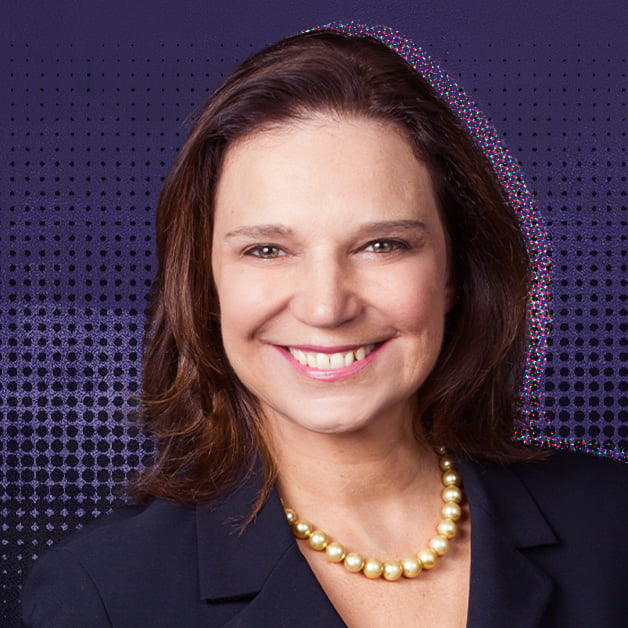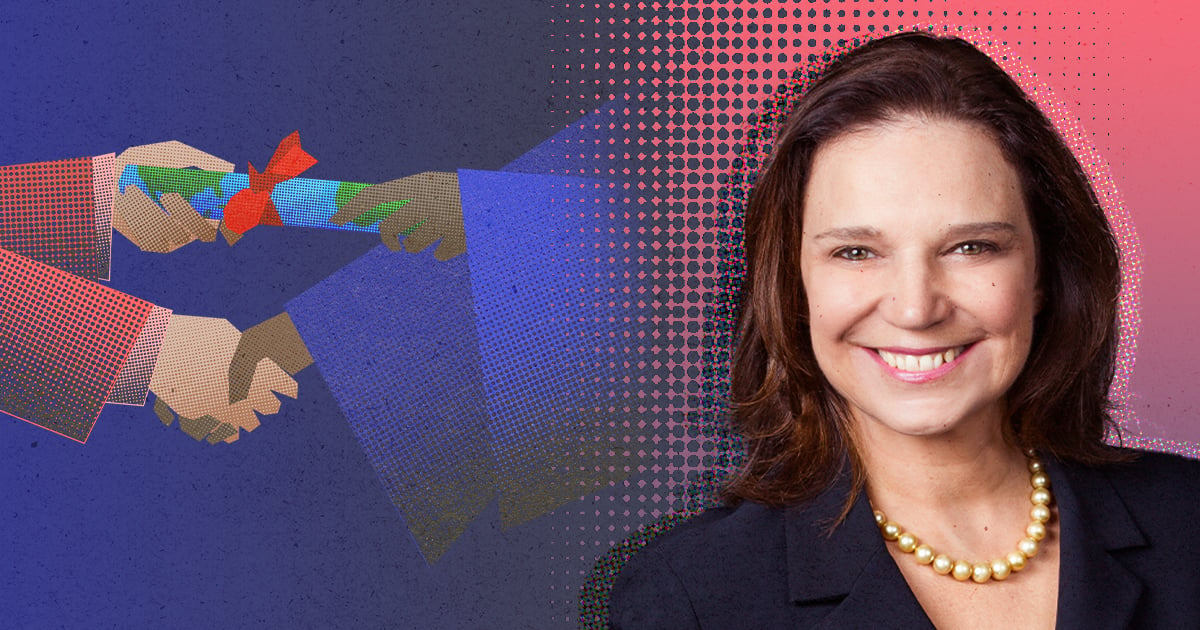
Ann Harrison
Dean, Haas School of Business, UC Berkeley
The greatest challenge of our time is slowing the pace of climate change and preserving the health of our planet.
To that end, I am putting out a call to business schools to commit to training the next generation of leaders to reduce greenhouse gas emissions to net zero by 2050.
We all play a critical role in the economic and social transition required to build a climate-resilient, low-carbon, and equitable future.
Thankfully, we are seeing businesses and business schools step up to meet this challenge. Ahead of the UN climate change summit in Glasgow last fall, for example, more than 100 companies across 16 countries and 25 industries pledged to achieve net-zero carbon emissions 10 years ahead of the Paris Agreement 2050 goal. We can also look for inspiration from our international b-school peers, including Australia’s Griffith Business School, which according to the latest Corporate Knights Better World Ranking, aligns most closely with the United Nations’ 17 Sustainable Development Goals (SDGs).
If we are to reach the target of cutting greenhouse gas emissions, sweeping changes will be needed across all major economic sectors."

Ann Harrison
Dean, Haas School of Business, UC Berkeley
This requires reimagining how we teach about agriculture, real estate, energy, finance, and corporate accountability, the five key sustainability areas we have prioritized at Haas. We focus on these areas with the realization that sustainability leadership is no longer just for people who work directly on climate issues or in climate technology. Accountants need to plan for the effects of climate change on valuation and outcomes; real estate developers and financiers will need to consider climate changes in forecasting risk; so will consultants and investment bankers. And leaders in life sciences will need to partner with business leaders.
After joining Haas in 2018, I quickly hired our school’s first chief sustainability officer, Michele de Nevers, who formerly worked for the World Bank and is a leader in the field. She built a team that evaluated our offerings in key areas. Some steps that we have taken so far include:
-
- Putting sustainability at the core of what we teach. Many business schools offer sustainability courses as electives. By the end of this year, we will incorporate sustainability into the core curriculum in all three of our MBA programs. We have also launched the Michaels MBA Graduate Certificate in Sustainable Business, which recognizes students who complete nine units from over 30 eligible climate and sustainability courses.
- Engaging the faculty in our mission. Today, 45 percent of faculty who teach in our core curriculum are integrating sustainability concepts, researching everything from ESG disclosure to wildfire risk in housing insurance.
- Giving employers the sustainability skills they are demanding. We continue to track the top sustainability skills in demand from MBA employers, and we map those to content taught in more than 40 Haas courses—everything from impact measurement and management to systems thinking to coalition building.
- Putting sustainability at the core of what we teach. Many business schools offer sustainability courses as electives. By the end of this year, we will incorporate sustainability into the core curriculum in all three of our MBA programs. We have also launched the Michaels MBA Graduate Certificate in Sustainable Business, which recognizes students who complete nine units from over 30 eligible climate and sustainability courses.
-
- Greening our buildings and operations with the first Zero Waste Certified academic building in the United States (Chou Hall) and partnering across our campus to reduce waste and energy usage. Haas works closely with UC Berkeley facilities management and its building vendors to ensure that building operations are designed for successful waste diversion.
Looking forward, we will feed off the enthusiasm and leadership of our students, who will be transforming business for a just and low-carbon future."

Ann Harrison
Dean, Haas School of Business, UC Berkeley
One key example in finance is the Sustainable Investment Fund at Haas, the first and largest student-led SRI fund within a leading business school. Student principals in the fund gain real-world experience and have more than tripled the initial investment to over $4 million, learning through experience about SRI and ESG investment strategies and practices.
Another example is in real estate, where students enrolled in the Real Estate Investment and Sustainability class consider the risks for cities that are unequipped to adapt to the impacts of climate change. Several recent final team projects centered on the sustainable redevelopment of two Bay Area shopping mall sites.
In corporate social responsibility, our MBA students taking the Sustainable Capitalism in the Nordics course traveled to Norway to study different approaches to creating sustainable supply chains, building an international firm sustainably, and scaling a company to have social impact. They met with companies like Carlsberg and Swedish beverage firm Good Idea to gain new insights and inspiration.
In considering all that we as business leaders have learned about climate change in recent years, the critical path we must agree upon is that we cannot and will not ignore the urgency to act. We should work together quickly to make business a force for a sustainable future.
